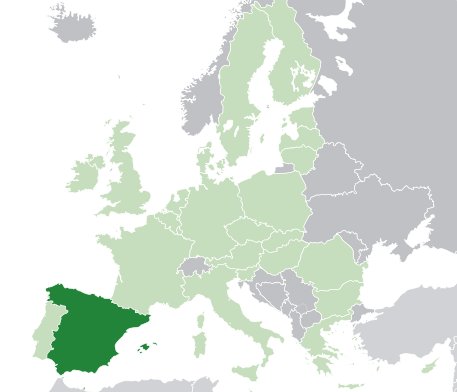04.11.12
Links 11/4/2012: Linux 3.4 RC2, Red Hat Storage 2.0 Beta, Kubuntu Finds New Sponsor
![]()
Contents
GNU/Linux
-
Softpedia Linux Weekly, Issue 194
-
Chrome OS
-
Google’s new Chrome OS: Back to the future
This new interface, Aura, is both a new desktop window manager and shell environment. Aura is an optional replacement for last year’s Chrome OS single Web browser interface. With it you can have multiple, small browser windows, each with its own set of tabs, against a desktop screen background. These windows can be overlapped like the Windows on older desktops such as GNOME 2.x, Windows 7 or Mac OS X.
-
Tweaks to Chrome OS Stir Up Existential Questions
-
New Aura Window Manager available in open source Chromium OS
-
-
Server
-
Instagram’s $Billion Sale Powered by Ubuntu Linux
The inter-tubes were buzzing yesterday with the news of the blockbuster $1 billion sale of Instagram to Facebook.
This is a company that is barely a year old and yet they achieved so much in so very little time.
While there are a number of components that contribute to Instagram’s success, it’s important to realize that Linux is one of them. While the front-end of Instagram is an iOS (and now Android) client there is also a back-end.
-
-
Kernel Space
-
Microsoft’s Linux Labors: A Signal of Defeat?
-
Linux 3.4 rc2
-
Linux 2.4 Hits the End of the Line
The first Linux 2.4 kernel was released in January of 2001. Today after eleven years of service, it looks like the end of the 2.4 kernel is finally here.
The 2.4 kernel has been in maintenance only mode for most of the last six years since the 2.6 kernel was first released. There has long been a subset of vendors (many on the embedded side) that still relied 2.4, but that’s no longer the case.
-
-
Applications
-
qOrganizer Squares Away Everything but Its Own Interface
Surpisingly, a relatively obscure app called qOrganizer goes a long way toward solving that problem. And for those with the luxury of just one computer, this handy app can be all that you need to track and manage your day. qOrganizer does a nice job of going head-to-head with some of the more well-established PIM apps as well.
Linux has a collection of apps to handle calendaring, note-taking and sounding reminder alarms. But much fewer full-fledged PIMs are available. qOrganizer matches up nicely against epic apps such as the Chandler Project’s Note to Self Organizer, KOrganizers, Osmo and Getting Things Gnome.
qOrganizer is a general organizer that includes a calendar with schedule, reminders, journal/notes for every day and a to-do list. Its otherwise comprehensive collection of components combined with a simple interface gives this app a fresh, innovative approach to tracking your important activities.
-
XBMC Media Center Comes To Debian, Ubuntu
The popular Media Center application XBMC is now available for Ubuntu and Linux Mint users, thanks to Debian. The application is now available through Ubuntu Software Center on Ubuntu 12.04 as it has been accepted into the official Debian distribution. The application was earlier available through a PPA.
-
XBMC: Killer App for GNU/Linux?
-
Pane Bonanza: 4Pane File Manager
-
Addendum to the first installment: alternate screencast applications
As you may recall, in the inaugural entry for this blog I described a crude mock-up I’d cobbled together, using Linux utilities, for producing screencast video lectures along the lines of those found on the khanacademy web site. I recently had occasion to explore some alternate screencast applications, since ogv files ceased playing back sanely on one of my systems. That issue was ultimately addressed by “upgrading” the video card in my aging Pentium 4 computer (with an old 128 MB nvidia card I got for $15). But not before I investigated some alternatives to recordmydesktop.
-
Read-Me: Google Reader Desktop Application With Unity Integration
-
Instructionals/Technical
-
An Emacs Guide for Programmers
-
Tethered Shooting with Entangle
-
Unix / Linux: Display Color Man Page
-
Cacti Makes Device Monitoring Simple
-
Virtualization With KVM On A CentOS 6.2 Server
-
Run a program or script every 5 or X minutes or hours
-
Optimize VPS server for Drupal Hosting | Using Varnish
-
How and why to use KAlarm from the command line
-
What to restart after a system upgrade ?
-
-
Games
-
-
Desktop Environments
-
K Desktop Environment/KDE SC/Qt
-
First look: Qt 5 makes JavaScript a first-class citizen for app development
The Qt development toolkit is undergoing a major overhaul. The developers behind the project announced the availability of the Qt 5 alpha release this week. It’s a key milestone on the path to the official launch of Qt 5, expected to occur later this year.
Qt is an open source toolkit designed to support cross-platform desktop and mobile application development. It provides libraries, user interface controls, and other components. Qt was originally created by Trolltech, a Norwegian software company that Nokia acquired in 2008. Nokia subsequently relicensed Qt under more permissive terms and transitioned the toolkit to a community-driven open governance model.
-
Simon Speech Recognition Project Moves to KDE
Simon, KDE’s speech recognition software, has recently migrated from Sourceforge to KDE’s Git infrastructure. Developed to allow people with physical disabilities to control their computers entirely by voice, Simon has found its way into voice-controlled media centers in homes for the elderly and most recently in assistive care-giving robots.
The move has also brought Simon into KDE Extragear, the kde-accessibility mailing list, and KDE’s accessibility sub-forum for user support.
The community around Simon has grown since the move, so this is a good time to join in for those interested in improving Simon or KDE’s other accessibility projects. The Simon Listens e.V. is also accepting tax-deductible donations (translated from German) to further support development of their software.
-
KDE Voted The Most Popular Desktop Environment
-
KLook: A Swiss Army Knife of media type viewers
-
Installing Nginx With PHP5 (And PHP-FPM) And MySQL Support On CentOS 6.2
-
-
-
Distributions
-
Ready to run? ROSA Marathon is here!
Yesterday, DistroWatch.com made it public that the beta 1 of ROSA Marathon is available for testing. This distro is a new fork of Mandriva.
Interestingly, after one day of being released, ROSA is now in the 11th position, trailing Mageia (#8 in DistroWatch).
-
New Releases
-
Red Hat Family
-
Red Hat Storage 2.0 Beta: Partners Test Big Data, Hadoop Support
A Red Hat Storage 2.0 beta with Big Data and Apache Hadoop support is now available. So what is Red Hat (NYSE: RHT) trying to achieve in the storage market, and where do partners potentially fit into the story? The VAR Guy is so pleased that you continue to raise such timely questions. Here are the answers.
First, the basics. Red Hat acquired Gluster in 2011 to push into the storage market. Red Hat Storage is a software-only solution that seeks to help partners and customers manage the storage of unstructured data. Open source storage, virtualization and middleware represent three critical ways Red Hat is trying to diversify beyond its Linux heritage.
-
Red Hat Storage 2.0 Beta: Partners Test Big Data, Hadoop Support
-
10Gen Takes Open Source NoSQL MongoDB Commercial with Red Hat
The emerging NoSQL database market isn’t just for startups anymore. 10gen the lead commercial sponsor behind the open source MongoDB database is partnering with enterprise Linux vendor Red Hat in a bid to grow marketshare.
The partnership will see MongoDB certified for enterprise use on Red Hat Enterprise Linux 5 and 6 as well as providing tools and support for joint customers. Mike Evans, VP of Business Development at Red Hat told InternetNews.com that there is now a move towards a new era of apps with mobile and cloud as the base. Those apps increasingly are moving away from traditional database in favor of NoSQL, especially MongoDB.
-
Red Hat Storage 2.0 Beta: Partners Test Big Data, Hadoop Support
-
MKM Partners Analysts Begin Coverage on Red Hat (RHT)
Investment analysts at MKM Partners assumed coverage on shares of Red Hat (NYSE: RHT) in a note issued to investors on Tuesday. The firm set a “neutral” rating on the stock.
Shares of Red Hat traded up 1.76% during mid-day trading on Tuesday, hitting $59.59. Red Hat has a 52 week low of $31.77 and a 52 week high of $62.24. The company has a market cap of $11.508 billion and a P/E ratio of 78.08.
-
The Gutierrez Company Announces 100,000 SF Build-to-Suit Office Development For Red Hat, Inc.
-
Red Hat Storage 2.0 Beta Now Available
-
-
Debian Family
-
Derivatives
-
Canonical/Ubuntu
-
Ubuntu Cloud Summit in Oakland, California in May 2012
-
5 problems with Ubuntu 12.04 part 2: Calendaring & forward planning
-
Canonical’s Quest for Greatness
Canonical, the commercial developer of the Ubuntu Linux operating system, seems at times to be stuck between a rock and a hard place. Some testers and industry watchers alike have praised the company’s innovative Unity desktop shell and the Heads Up Display (HUD) bolted on top of it in this month’s release of Ubuntu 12.04, the Precise Pangolin.
-
Flavours and Variants
-
Kubuntu Now Independent Of Canonical, To Be Sponsored By Blue Systems
Kubuntu, the KDE-based derivative of Ubuntu, is entering a new era. Blue Systems will be sponsoring Kubuntu from the 12.10 cycle starting in May. Canonical recently stopped sponsoring Jonathan Riddell’s work on KDE. Jonathan gave indications of this sponsorship during a recent meeting when he asked if it was OK with the Technical Board of Ubuntu if someone else sponsored Kubuntu.
-
Kubuntu Finds Sponsor, Lives On
Well of course it lives on! When Canonical cut the proverbial cord, it simply meant that Jonathon Riddell and the Kubuntu community would have to continue outside of business hours. Regardless of the time Riddell spent at Canonical, the community has still been able to carry to the torch.
-
Kubuntu Finds New Sponsor
-
-
-
-
-
-
Devices/Embedded
-
Raspberry Pi works with a 30-year-old mini CRT display
-
Phones
-
Android
-
-
Sub-notebooks/Tablets
-
Free Software/Open Source
-
Open source: Code still matters
Discussions about Red Hat’s involvement in the OpenStack project have dredged up old enmities about Red Hat’s kernel development practices, charges that are perhaps misdirected, yet still reflect a strong undercurrent on the value of code contribution in open source.
It was an innocuous article from colleague Sean Michael Kerner that started the whole thing, which highlighted an interesting analysis of code contributions to the recent Essex release of OpenStack.
-
Another Billion-Dollar Open Source Company: Instagram
-
Help Free and Open Source Project ‘Open Octave’ and Win a Computer [i7, 24GB RAM, 3TB Hard Drive]
-
Non-Linux FOSS: TrueCrypt
TrueCrypt is a fully open-source tool for encrypting data. That data can be on a completely encrypted hard drive, or just an encrypted image file. Thankfully, the encryption works the same regardless of your platform, so Windows and OS X users can share encrypted files between computers.
-
Web Browsers
-
Mozilla
-
Firefox to Gain Real-Time Video Chat Features
Mozilla has posted a very interesting demonstration of real-time video chat features that will head into the Firefox browser later this year. The company is building technology around the Web Real Time Communication (WebRTC) standard, which facilitates real-time video chat without requiring browser users to install any plugins. You can view the demonstration on The Mozilla Hacks blog, and here are more details on the technology.
-
-
-
SaaS
-
Red Hat Contributes More to OpenStack than Canonical Ubuntu
Last year, Canonical the lead commercial sponsor behind Ubuntu, made a big deal about switching their Ubuntu Enterprise Cloud (UEC) technology to an OpenStack base. The OpenStack open source cloud community also based their reference architecture on Ubuntu.
With that amount of ‘tight’ public integration you would think that Canonical/Ubuntu would be a major contributor to OpenStack. You would also think that Red Hat, which has its own cloud efforts would be no where to be found on the list of OpenStack contributors.
-
How to Learn Your Way Around the Cloud
-
It’s Not Highlander: There Can Be More Than One Open Source Cloud
-
Comparing participation in the open source cloud communities
With competition heating up in open source clouds, an analysis of community participation among four major projects shows that Eucalyptus – the oldest of those studied – has the largest standing community but OpenStack and CloudStack are gaining momentum in the developer community.
The dynamics of the open source cloud computing market are changing. Eucalyptus, which is a private cloud Infrastructure as a Service model, recently announced a partnership with Amazon Web Services to ensure interoperability between the two systems. Meanwhile, Citrix announced this week it would be migrating away from the OpenStack project and would give its CloudStack platform an Apache license, in effect creating a competing open source project to OpenStack.
-
CloudStack to Apache: Brilliant or Boneheaded?
-
-
Databases
-
HP Public Cloud Twist: Oracle MySQL vs Microsoft SQL Azure
How’s this for ironic: The new HP Public Cloud will promote MySQL databases as a service, essentially leveraging Oracle’s software to compete with the Microsoft SQL Azure cloud, among other public cloud database services.
-
HP Converged Cloud and HP Public Cloud: Details Confirmed
-
-
Oracle/Java/LibreOffice
-
CMS
-
First Peek at WordPress 3.4
The next WordPress release is just around the corner, and the first beta came out on April 5th. If you’re a WordPress user, or thinking about using WordPress in the near future, here’s what you have to look forward to.
The 3.4 release is set to be pretty modest – the set of features in 3.4 is not extensive or likely to change the WordPress experience too substantially. But it does have a few features that are worth taking note of.
-
-
Business
-
BSD
-
Public Services/Government
-
Government Agency Built From Ground Up with Open Source
The Consumer Financial Protection Bureau had the distinct advantage of being able to build its systems from scratch, having been established by a 2010 law.
One of the advantages it has had over other government agencies making the transition to more modern systems was the fact it was entirely unencumbered by legacy systems. As such, it took advantage of that flexibility to build open systems built on open source software that could grow with the agency over time.
-
Leftovers
-
U.S. Government Files Antitrust Suit Against Apple and Five Publishers
The U.S. took legal aim at Apple Inc. and five of America’s largest publishing firms on Wednesday, hitting them with an antitrust lawsuit for allegedly setting pricing patterns for eBooks that limit competition. The suit contends that Apple and the group of publishing companies cost consumers millions of dollars through an arrangement where publishers set the pricing of eBooks, eliminating variable costs for them that could have been set by retailers and distributors.
-
U.S. Suit Says Apple, Publishers Colluded on E-Book Prices
-
Security
-
Microsoft seals up Windows zero-day flaw in April Patch Tuesday
Microsoft released six bulletins on Tuesday to fix a total of 11 vulnerabilities, one of which has become the target of active attacks against unpatched applications.
One of the four critical patches in the batch – MS12-027 – addresses an Active X issue that impacts numerous application and creates a mechanism to drop malware onto vulnerable Windows systems.
Microsoft warned of attacks in the wild against the zero-day flaw, which affects an unusually wide range of Microsoft products and Microsoft users. Applications affected include Office 2003 through 2010 on Windows; SQL Server 2000 through 2008 R2; BizTalk Server 2002; Commerce Server 2002 through 2009 R2; Visual FoxPro 8; and Visual Basic 6 Runtime.
-
-
Environment/Energy/Wildlife
-
US Coal Exports at Highest Level in Twenty Years
For the full year of 2011, the US exported 107,259 thousand short tons of coal. This was the highest level of coal exports since 1991. More impressive: exports recorded a more than 25% leap compared to the previous year, 2010. (see data here, opens to PDF). Additionally, this was also a dramatic breakout in volume from the previous decade, which ranged from 40,000 – 80,000 thousand short tons per annum. The below chart, from EIA Washington, does not capture the full year, though it certainly portrays the trend. Nota bene: this chart tracks the quarterly volumes of coal exports:
-
-
Finance
-
Finance as Wealth Transfer Mechanism: An Interview with James Galbraith
-
Goldman Sachs: Making Money By Stealing It
Money power in private hands and democracy can’t co-exist. Wall Street crooks transformed America into an unprecedented money making racket.
-
-
Censorship
-
Net Filtering Violates the Rule of Law
Last year, in their decision regarding the controversial LOPPSI bill, French constitutional judges held that Article 4 of the bill, which allows the French government to censor the Internet under the pretext of fighting child pornography, is not contrary to the Constitution. In doing so, the French constitutional court failed to protect fundamental freedoms on the Internet, and in particular freedom of expression. Hope now lies with European institutions, the only ones with the power to prohibit such administrative website blocking and its inherent risks of abuse.
-
-
Privacy
-
When the cops subpoena your Facebook information, here’s what Facebook sends the cops
This week’s Boston Phoenix cover story — Hunting the Craigslist Killer: An Untold Detective Story from the Digital Frontier — would not have been possible without access to a huge trove of case files released by the Boston Police Department. Many of those documents have never been made public — until now. As a kind of online appendix to the article, we’re publishing over a dozen documents from the file, ranging from transcripts of interviews to the subpoenas that investigators obtained from the tech companies that helped them track the killer’s digital fingerprints. We’ve also published the crime scene photos and uploaded recordings made by investigators as they interviewed the killer, Philip Markoff, and others involved in the case.
One of the most fascinating documents we came across was the BPD’s subpoena of Philip Markoff’s Facebook information. It’s interesting for a number of reasons — for one thing, Facebook has been pretty tight-lipped about the subpoena process, even refusing to acknowledge how many subpoenas they’ve served. Social-networking data is a contested part of a complicated legal ecosystem — in some cases, courts have found that such data is protected by the Stored Communications Act.
-
-
Civil Rights
-
Uncivil Liberties: The Coalition’s Surveillance Chaos
It has been a of week of chaos for Britain’s government on civil liberties. Theresa May signaling the intention to bring in legislation to allow law enforcement agencies to check email, web, social media and gaming forum traffic unleashed a wave of protest. It also unleashed contradiction in the government parties. The Conservatives were quick to exploit the “being tough on crime” angle in the Sun. LibDem president Tim Farron was fielded to promise to shoot down the proposals Nick Clegg was set up to defend just a few short days before.
We have had leaks, briefings, interviews, spin and letters. Lots of letters. The whole debacle has been capped with Home Office and the Prime Minister’s websites being DDoSed by Anonymous.
-
The “99% Spring” to Train 100,000 Activists
-
-
Intellectual Monopolies
-
Copyrights
-
ACTA
-
EU Parliament Must Stand Firm On Its Political Assessment of ACTA
Paris, April 10th 2012 – The European Parliament has decided not to refer ACTA to the EU Court of Justice, and will normally hold its final vote this summer, as originally planned. This coming week marks a new opportunity for EU citizens to engage with their elected representatives in Brussels, calling on them to move swiftly toward a thorough political assessment of ACTA.
-
-
-























 Content is available under CC-BY-SA
Content is available under CC-BY-SA